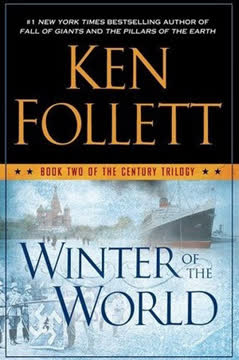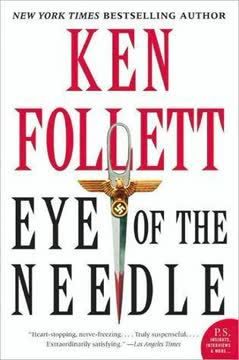Plot Summary
A Peaceful Square's Countdown
In the serene setting of Sainte-Cécile, Felicity "Flick" Clairet, a British officer and secret agent, contemplates the high-stakes mission to destroy a German telephone exchange. The operation is crucial to disrupt German communications before the Allied invasion. Flick, deeply connected to France, is driven by her love for the country and her strained relationship with her husband, Michel, a Resistance leader. As the church bell tolls, signaling the start of their operation, Flick reflects on the risks and her commitment to the mission.
Flick's Dangerous Mission Unfolds
Disguised as locals, Flick and her team launch an assault on the château. The plan is to divide the German guards and destroy the vital equipment in the basement. Despite their bravery, the Germans are prepared, and the Resistance suffers heavy losses. Flick's plan falters, and in a desperate move, she rescues her wounded husband, Michel. The mission's failure leaves Flick grappling with the consequences and the need for a new strategy.
Dieter's Calculated Interrogation
Major Dieter Franck, a skilled German interrogator, arrives to extract information from captured Resistance fighters. Using psychological manipulation and brutality, he focuses on Gaston and Bertrand, eventually breaking Gaston to reveal crucial details about the Resistance. Dieter's success is tempered by the realization of the Resistance's strength, but he remains determined to dismantle it.
A Team of Misfits Assembles
Back in London, Flick proposes a new plan to infiltrate the château with an all-female team disguised as cleaners. Despite skepticism, she gains approval and recruits a diverse group: Diana, Maude, Ruby, Jelly, and Greta. Each woman brings unique skills, but their backgrounds and personalities clash. Flick faces the challenge of molding them into a cohesive unit, knowing the mission's success depends on their ability to work together.
Secrets and Deceptions in Reims
Dieter continues his pursuit of the Resistance, using captured agent Helicopter to lead him to Michel. Posing as an ally, Dieter gains Helicopter's trust and learns about the network's operations. Meanwhile, Stéphanie, Dieter's lover, impersonates a Resistance contact to trap agents. Despite Gestapo interference, Dieter maintains his cover, focused on crippling the Resistance.
Training the Jackdaws for War
At the Finishing School, Flick's team undergoes intensive training in parachuting, map reading, and combat skills. Each member faces personal challenges, with Diana excelling in marksmanship and Greta struggling physically. As they bond over shared experiences, tensions arise, particularly between Jelly and Greta. Flick observes their progress, aware of the mission's high stakes and the need for readiness.
Ruby's Arrest and Sacrifice
As the Jackdaws prepare to infiltrate the château, Ruby is stopped by a Milice officer. Her quick thinking and sacrifice allow the rest of the team to proceed. She stabs the officer but is captured by Gestapo agents, creating a diversion that enables Flick and the others to continue. Ruby's actions highlight her courage and the high stakes of their operation.
Flick's Daring Infiltration Plan
Flick, Greta, and Jelly enter the château disguised as cleaners, navigating through the building to reach the basement. Flick's leadership and quick thinking are crucial as they plant explosives to destroy the communication hub. The tension is palpable as they work against the clock, knowing that discovery would mean certain death.
Dieter's Desperate Pursuit
Determined to capture Flick, Dieter follows Michel, hoping he will lead him to the Jackdaws. Despite setbacks, Dieter remains focused, driven by a personal vendetta against Flick. His pursuit is marked by cunning and ruthlessness, as he uses every resource to track down the saboteurs. Dieter's obsession with Flick becomes a dangerous game of cat and mouse.
The Explosive Mission Unfolds
Flick and her team successfully plant explosives in the château's basement. As they make their escape, the building erupts in flames, crippling German communications. The mission's success is bittersweet, as they mourn the loss of their comrades. The explosion marks a turning point in the war, disrupting German operations and aiding the Allied invasion.
A Final Confrontation in Reims
As the Jackdaws prepare to leave France, Dieter catches up with Flick. In a tense confrontation, Flick uses her wits and combat skills to overcome him. The encounter is a culmination of their ongoing battle, with Flick emerging victorious. Dieter's defeat symbolizes the collapse of German resistance, as the Allies gain the upper hand.
The Aftermath of War
With the war over, Flick and Paul marry, looking forward to a future together. The Jackdaws' mission is recognized as a significant contribution to the Allied victory, though not all receive the honors they deserve. The story concludes with a reflection on the sacrifices made and the enduring impact of their actions. The legacy of the Jackdaws lives on, a reminder of the bravery and determination that helped change the course of history.
Characters
Felicity "Flick" Clairet
Flick is the heart of the Jackdaws, leading her team with intelligence and bravery. Her deep connection to France fuels her determination to disrupt German operations. Throughout the mission, Flick's quick thinking and resourcefulness are crucial to their success. Her personal journey is marked by sacrifice and resilience, as she navigates the complexities of war and love.
Michel Clairet
Michel is Flick's husband and the leader of the Bollinger circuit. His charm and leadership inspire loyalty, but his personal life is complicated by infidelity. Wounded in the failed attack on the château, Michel's relationship with Flick is strained. Despite his flaws, he remains committed to the Resistance, working alongside Flick to disrupt German operations.
Dieter Franck
Dieter is a skilled German interrogator, driven by a personal vendetta against Flick. His pursuit of the Jackdaws is marked by cunning and ruthlessness. Despite his intelligence, Dieter's obsession blinds him to the resilience of his opponents. His eventual defeat symbolizes the collapse of German resistance and the triumph of the Allied forces.
Stéphanie
Stéphanie is Dieter's lover and accomplice, posing as Mademoiselle Lemas to trap Resistance agents. Her loyalty to Dieter is unwavering, and she uses her charm and intelligence to support his mission. Stéphanie's past and motivations are complex, adding depth to her role in the espionage game.
Diana Colefield
Diana is an aristocrat and childhood friend of Flick, recruited for her sharpshooting skills. Her privileged background and rebellious nature create tension within the team. Despite her lack of discipline, Diana's abilities make her a valuable asset to the mission.
Maude Valentine
Maude is a FANY driver with a penchant for fantasy and flirtation. Her charm and language skills are assets, but her lack of discipline poses challenges. Maude's friendship with Diana and her interactions with Paul add complexity to her character.
Ruby Romain
Ruby's quick thinking and sacrifice are pivotal to the mission's success. Her arrest creates a crucial diversion, allowing the Jackdaws to proceed. Ruby's actions highlight her courage and dedication to the cause, as she willingly risks her life for the success of the team. Her legacy is one of bravery and selflessness.
Jelly Knight
Jelly is an older member of the team, recruited for her expertise in explosives. Her past as a safebreaker and her determination to prove herself make her a key player. Jelly's skepticism and hostility towards Greta create tension within the group.
Greta
Greta's expertise in telecommunications is crucial to the mission's success. Her ability to adapt and overcome personal fears highlights her resilience and determination. Greta's role in the team is marked by her technical skills and her ability to remain calm under pressure, contributing significantly to the Jackdaws' victory.
Paul Chancellor
Paul is Flick's ally and love interest, providing support and guidance throughout the mission. His commitment to the cause and to Flick is unwavering, as he navigates the challenges of war. Paul's presence is a source of strength for Flick, and their relationship symbolizes hope and resilience in the face of adversity.
Plot Devices
The Failed Attack on the Château
The failed attack on the château sets the stage for the story, highlighting the challenges faced by the Resistance. The mission's failure underscores the importance of disrupting German communications and motivates Flick to devise a new plan. This event serves as a catalyst for the formation of the Jackdaws and the subsequent mission.
Dieter's Interrogation Techniques
Dieter's interrogation methods reveal his character and the lengths to which he will go to dismantle the Resistance. His success in extracting information from captured fighters drives the plot forward, providing crucial intelligence that shapes the story's direction. Dieter's tactics also highlight the moral complexities of war.
The Formation of the Jackdaws
The assembly of the Jackdaws introduces a diverse group of characters, each with unique skills and backgrounds. Their training and interactions provide insight into their personalities and the challenges they face. The team's formation is central to the plot, as their mission to infiltrate the château becomes the story's focus.
Stéphanie's Impersonation of Mademoiselle Lemas
Stéphanie's role as an impostor adds tension and intrigue to the story. Her ability to maintain her cover and manipulate incoming agents is crucial to Dieter's plan. This plot device highlights the dangers of espionage and the thin line between success and failure in undercover operations.
The Cover Story of the Railway Tunnel
The cover story of the railway tunnel serves as a protective measure, ensuring that the true mission remains secret. This device adds layers of deception and complexity to the plot, as characters navigate the challenges of maintaining their cover while preparing for the real operation.
The Infiltration of the Château
The Jackdaws' infiltration of the château is a pivotal moment in the story. Disguised as cleaners, they navigate the building to plant explosives in the basement. This plot device highlights the themes of deception and bravery, as the team risks everything to disrupt German communications. The successful execution of the plan is a turning point in the war.
Dieter's Pursuit of Flick
Dieter's pursuit of Flick is a central plot device, driving the tension and conflict in the story. His obsession with capturing her leads to a series of confrontations, culminating in a final showdown. This device explores themes of obsession and resilience, as Flick outsmarts her adversary and emerges victorious.
The Explosive Climax
The explosion at the château is the climax of the story, marking the success of the Jackdaws' mission. This plot device underscores the high stakes and the impact of their actions, as the destruction of the telephone exchange cripples German operations. The explosion is a symbol of the Allies' growing strength and the turning tide of the war.
Analysis
"Jackdaws" by Ken Follett is a gripping narrative that explores the themes of courage, sacrifice, and the complexities of war. Through the lens of espionage and resistance, the story highlights the resilience of individuals who risk everything for a greater cause. The diverse characters, each with their unique strengths and flaws, embody the spirit of determination and bravery. The novel delves into the moral ambiguities of war, where deception and sacrifice are necessary for victory. Ultimately, "Jackdaws" is a testament to the power of human spirit and the enduring impact of those who fight for freedom.
Last updated:
FAQ
Synopsis & Basic Details
What is Jackdaws about?
- All-Female Sabotage Mission: Jackdaws follows Felicity "Flick" Clairet, a seasoned British secret agent, as she leads an unconventional all-female team, codenamed "Jackdaws," on a perilous mission into occupied France in May 1944. Their objective is to infiltrate a heavily guarded German telephone exchange in Sainte-Cécile and destroy it, aiming to cripple Nazi communications just before the anticipated D-Day invasion.
- Espionage, Love, and Betrayal: The narrative weaves together high-stakes espionage with intricate personal dramas, exploring Flick's strained marriage to French Resistance leader Michel, her burgeoning feelings for American intelligence officer Paul Chancellor, and the complex motivations of her diverse team. It also delves into the relentless pursuit by Major Dieter Franck, a cunning Gestapo interrogator, who becomes Flick's personal nemesis.
- Race Against Time: The story is a tense race against time, as Flick and her team navigate a landscape riddled with German patrols, Gestapo traps, and the constant threat of betrayal, all while battling their own fears and internal conflicts, to deliver a crucial blow to the Nazi war machine.
Why should I read Jackdaws?
- Gripping Historical Thriller: Jackdaws offers a meticulously researched and fast-paced historical thriller set during a pivotal moment in World War II, providing a vivid portrayal of the French Resistance and the Special Operations Executive (SOE). Readers seeking a blend of historical accuracy, suspense, and action will find it compelling.
- Complex Female Protagonists: The novel stands out for its focus on a diverse cast of strong, flawed, and deeply human female characters, challenging traditional wartime narratives. It delves into their psychological complexities, personal sacrifices, and the unique challenges they faced in a male-dominated world of espionage.
- Moral Ambiguity & High Stakes: Ken Follett masterfully explores the moral ambiguities of war, where heroes commit brutal acts, and enemies exhibit unexpected depth. The constant threat of capture, torture, and death imbues every decision with immense weight, making for an emotionally resonant and thought-provoking read.
What is the background of Jackdaws?
- WWII Espionage & SOE: Jackdaws is set in May-June 1944, immediately preceding the D-Day landings, a critical period in World War II. The Special Operations Executive (SOE), a real-life British organization, is central to the plot, reflecting its historical role in conducting sabotage and supporting resistance movements in occupied Europe. The book's dedication to the 50 women sent into France by SOE underscores its historical inspiration.
- Occupied France & Resistance: The story vividly portrays the harsh realities of occupied France, including German military presence, Gestapo brutality, rationing, curfews, and the pervasive fear of collaboration. It highlights the clandestine networks of the French Resistance, their methods of communication, and the immense risks taken by ordinary citizens.
- Technological Warfare: The novel integrates details of wartime technology, from Lysander pickup planes and suitcase radios to advanced telephone exchanges and radio direction-finding equipment. These elements are not mere background but integral to the plot, showcasing the technological cat-and-mouse game played by Allied and Axis intelligence.
What are the most memorable quotes in Jackdaws?
- "Snafu," Flick repeated. "It's an acronym. It stands for Situation Normal All Fucked Up.": This quote, delivered by Flick to her driver after the initial failed mission (Chapter 7), perfectly encapsulates the chaotic and unpredictable nature of wartime operations, often despite meticulous planning. It highlights the grim humor and resilience required to survive in such an environment, and Flick's own pragmatic, no-nonsense attitude.
- "You're a killer," she said. "And that's what I need.": Flick's blunt assessment of Diana Colefield (Chapter 11) reveals the brutal pragmatism necessary for wartime leadership. It strips away any romantic notions of heroism, emphasizing that the mission demands individuals capable of extreme violence, regardless of their social standing or personal history. This quote defines the ruthless selection process for the Jackdaws.
- "I love you," she said. "And you love me, I know, even though you never say it.": Stéphanie's poignant declaration to Dieter Franck (Chapter 15) exposes the complex emotional undercurrents beneath the brutal surface of war. It highlights her deep, almost desperate, loyalty and affection for Dieter, despite his ruthless profession and their morally compromised relationship, revealing a vulnerability that humanizes both characters.
What writing style, narrative choices, and literary techniques does Ken Follett use?
- Propulsive, Detail-Rich Realism: Ken Follett employs a direct, unadorned prose style that prioritizes clarity and momentum, making Jackdaws a highly accessible and engaging read. He meticulously integrates historical details, technical specifications (e.g., weapon types, radio operation, telephone exchange components), and geographical descriptions, grounding the high-stakes plot in a convincing reality. This realism enhances the tension and immerses the reader in the wartime setting.
- Alternating Perspectives & Omniscient Narration: The narrative frequently shifts between the perspectives of key characters, particularly Flick Clairet and Dieter Franck, using a third-person omniscient point of view. This allows Follett to build suspense by showing both sides of the espionage game, revealing the plans and counter-plans of protagonists and antagonists alike. This technique creates dramatic irony and a comprehensive understanding of the unfolding events, enriching the reader's experience of the cat-and-mouse chase.
- Foreshadowing & Thematic Echoes: Follett subtly weaves in foreshadowing through seemingly minor details or character observations, such as Antoinette's initial misgivings about German troop numbers or Flick's intuition about Dieter Franck. Recurring motifs like the "Jackdaw of Reims" legend (Chapter 28) and the constant references to the unpredictable nature of war (e.g., "Snafu") serve as thematic echoes, reinforcing the novel's core messages about fate, courage, and the human cost of conflict.
Hidden Details & Subtle Connections
What are some minor details that add significant meaning?
- Dieter's Hispano-Suiza Car: The sky-blue Hispano-Suiza (Chapter 1), initially presented as a symbol of German arrogance and luxury, later becomes a recurring motif for Dieter Franck's character. Its bullet holes (Chapter 6) are a "dueling scar," reflecting his self-perception as a daring, almost romantic, adversary. The car's eventual use in transporting captured Resistance members and its final destruction in the château explosion (Chapter 51) symbolize the ultimate collapse of his carefully constructed world and the futility of his personal vendetta.
- Antoinette's Faded Chic: Antoinette Dupert, Michel's aunt and a cleaner at the château, is described as wearing a "cotton dress that had once been chic and was now faded but crisply pressed" (Chapter 3). This detail subtly conveys the impact of wartime austerity on French society, where even those with a sense of style must make do. Her "crisply pressed" appearance, however, hints at a resilience and determination to maintain dignity amidst hardship, mirroring the quiet defiance of many French citizens.
- Paul's Wooden Toothbrush: The French-made wooden toothbrush Paul carries (Chapter 40) becomes a small but potent symbol of his connection to Flick and his commitment to the mission. Its accidental drop outside Mademoiselle Lemas's house (Chapter 40) serves as a crucial, almost subconscious, breadcrumb for Flick, confirming Paul's presence and raising her suspicions about the compromised safe house. It represents a tangible link between their personal and professional lives, a small piece of intimacy carried into a dangerous world.
What are some subtle foreshadowing and callbacks?
- Flick's Mother's Intuition: Flick's mother, Ma, possesses an uncanny intuition, accurately sensing Michel's infidelity and Flick's return to France (Chapter 11). Her seemingly casual remarks, like "He might keep his promise—if you're not away too long," subtly foreshadow the ongoing challenges in Flick's marriage and the prolonged nature of her dangerous work. This maternal foresight adds a layer of emotional depth, highlighting the personal sacrifices behind the espionage.
- The "Jackdaw of Reims" Legend: The legend of the Jackdaw of Reims, a bird that stole the bishop's ring and was cursed (Chapter 28), is introduced as the team's code name. This seemingly innocuous detail subtly foreshadows the team's audacious "theft" of German communications, their eventual "bedraggled" state after the mission, and the "curse" of loss and sacrifice that befalls many of them. It also hints at the unexpected nature of their success, achieved by a seemingly insignificant group.
- Dieter's Migraines: Dieter Franck's recurring migraines, often triggered after intense interrogations (Chapter 9, 46), are more than just a physical ailment. They subtly foreshadow the mental and emotional toll his ruthless methods take on him, hinting at a deeper psychological cost to his villainy. His reliance on morphine and Stéphanie's care during these episodes reveals a hidden vulnerability beneath his hardened exterior, suggesting that even the torturer is not immune to suffering.
What are some unexpected character connections?
- Percy Thwaite's Working-Class Roots: Colonel Percy Thwaite, Flick's paternal mentor, is revealed to have a working-class background, having been born in a poor London neighborhood and flogged at school for his accent (Chapter 13). This unexpected detail contrasts sharply with his current position and refined demeanor, explaining his empathy for Flick (also a scholarship student) and his deep-seated distrust of upper-class bureaucrats like Fortescue. It adds a layer of complexity to his character, showing him as a man who has navigated and transcended rigid social structures.
- Greta's German Identity and Homosexuality: Greta, the indispensable telephone engineer, is revealed to be a German male transvestite (Gerhard) who fled Hamburg after his lover was taken by the Nazis (Chapter 16). This is a profound and unexpected connection, as it means the Jackdaws team includes a German fighting against his own country's regime due to personal persecution. His "deviant diva" persona and tragic backstory add immense depth, highlighting the diverse motivations for resistance and the human cost of Nazi ideology beyond traditional battle lines.
- Diana and Maude's Romantic Relationship: The aristocratic Diana Colefield and the flirtatious Maude Valentine develop a romantic and sexual relationship during their brief training (Chapter 23). This connection is unexpected given their initial characterizations and the wartime setting, subtly challenging conventional gender roles and societal expectations. Their shared intimacy, tragically cut short by their capture and death in Ravensbrueck, adds a poignant layer to their sacrifice, suggesting a love found and lost amidst the horrors of war.
Who are the most significant supporting characters?
- Percy Thwaite: As Flick's handler and mentor, Percy Thwaite is crucial for his unwavering support, strategic insight, and deep personal care for Flick. He navigates the bureaucratic infighting of SOE and MI6, advocating for Flick's unconventional plans and assembling the diverse Jackdaws team. His working-class background and compassionate nature provide a moral compass within the ruthless world of espionage, making him a vital emotional anchor for Flick and a key facilitator of the mission.
- Stéphanie Vinson: Dieter Franck's French mistress, Stéphanie, is far more than a mere accomplice. Her complex loyalty, born from Dieter saving her from a concentration camp (Chapter 2), makes her an effective and adaptable agent in his schemes. Her impersonation of Mademoiselle Lemas and her role in capturing Allied agents are pivotal to Dieter's counter-intelligence efforts. Her tragic death at Flick's hands (Chapter 41) is a significant emotional turning point for Dieter, fueling his personal vendetta.
- Mademoiselle Jeanne Lemas: Though she appears briefly and is quickly captured, Mademoiselle Lemas is a crucial "cut-out" in the Resistance network. Her house serves as a vital safe house, and her capture provides Dieter with the initial breakthrough he needs to infiltrate the Bollinger circuit. Her quiet defiance under interrogation (Chapter 12) and her eventual survival of Ravensbrueck (Chapter 53) underscore the resilience of ordinary French citizens who aided the Resistance, making her a symbol of quiet courage.
Psychological, Emotional, & Relational Analysis
What are some unspoken motivations of the characters?
- Flick's Quest for Redemption: Beyond her patriotic duty, Flick's relentless drive to succeed in the mission is subtly fueled by a desire for personal redemption and validation. The initial failure at Sainte-Cécile, coupled with her husband Michel's infidelity, leaves her feeling "inadequate as a leader, inadequate as a wife" (Chapter 8). Her determination to "build on their sacrifice and get some kind of victory" (Chapter 5) is an unspoken attempt to prove her worth, both professionally and personally, and to find meaning in the immense losses.
- Dieter's Need for Control and Recognition: Dieter Franck's ruthless pursuit of Flick and the Resistance is driven by more than just military duty. His past as a "high flyer" policeman (Chapter 2) and his resentment of bureaucratic incompetence (especially Weber's) suggest a deep-seated need for control and recognition. His obsession with Flick, particularly after she outwits him and kills Stéphanie, transforms into a personal vendetta, an unspoken desire to reassert his intellectual and professional superiority.
- Michel's Charismatic Self-Preservation: Michel Clairet's "careless grin" and "unkept charm" (Chapter 1) mask a deeper, unspoken motivation for self-preservation and perhaps a fear of commitment. His infidelity, his willingness to let others take risks, and his "too lucky" escape from Gestapo custody (Chapter 45) hint at a character who, while charismatic and brave, prioritizes his own survival and comfort, even at the expense of others or his marriage.
What psychological complexities do the characters exhibit?
- Flick's Ruthless Pragmatism vs. Empathy: Flick exhibits a profound psychological complexity, balancing the ruthless pragmatism required for her work with moments of deep empathy and moral conflict. She can coldly order the execution of a collaborator (Stéphanie, Chapter 41) and dismiss the emotional distress of her team, yet she is deeply affected by the deaths of her comrades and the thought of her own potential capture and torture (Chapter 13, 45). This internal struggle highlights the psychological toll of her role, forcing her to compartmentalize her emotions to survive and lead.
- Dieter's Aestheticism and Sadism: Major Dieter Franck is a chilling study in psychological contradiction. He is a connoisseur of French art, culture, and fine living, appreciating beauty and refinement (Chapter 2, 35). Yet, he is also a "ruthless torturer" (Chapter 8), capable of inflicting unimaginable pain with cold, scientific detachment. This juxtaposition of aesthetic sensibility with extreme sadism reveals a deeply disturbed psyche, where the pursuit of order and information overrides all moral boundaries, making him a truly terrifying antagonist.
- Greta's Vulnerability and Resilience: Greta (Gerhard) presents a complex psychological profile of vulnerability masked by resilience. As a transvestite in wartime, he lives a double life, constantly fearing exposure and persecution (Chapter 16). His initial physical timidity during training contrasts sharply with his unwavering commitment to the mission and his ability to maintain his disguise under extreme pressure. His personal trauma (Manfred's capture) fuels his desire for revenge against the Nazis, transforming his vulnerability into a powerful, albeit hidden, source of strength.
What are the major emotional turning points?
- Flick's Discovery of Michel's Infidelity: The discovery of Michel's shaving kit in Gilberte's apartment (Chapter 5) is a major emotional turning point for Flick. It shatters her romantic illusions about her husband and forces her to confront the reality of his character. This betrayal, occurring amidst the failure of her first mission, fuels her determination to prove herself and re-evaluates her priorities, subtly shifting her emotional allegiance towards Paul.
- Dieter's Loss of Stéphanie: Stéphanie's murder by Flick (Chapter 41) is a devastating emotional turning point for Dieter. Despite his professional detachment, he realizes he is deeply in love with her, and her death unleashes a "raging desire for revenge" (Chapter 42) against Flick. This personal loss transforms his professional pursuit into a deeply emotional and obsessive vendetta, making him even more dangerous and unpredictable.
- Paul and Flick's Intimacy: The night Paul and Flick spend together before the mission (Chapter 27) marks a significant emotional turning point for both. Their shared vulnerability, intimate conversations, and physical connection solidify their bond, moving beyond professional respect to deep personal affection. For Flick, it represents a profound shift in her emotional landscape, signaling the end of her marriage and the beginning of a new, more authentic relationship.
How do relationship dynamics evolve?
- Flick and Michel: From Worship to Disillusionment: The relationship between Flick and Michel evolves from Flick's initial "worship" and romantic idealization to a painful disillusionment. Michel's repeated infidelities and perceived weakness erode Flick's affection, transforming their bond into one of duty and shared purpose rather than passionate love. His death, while tragic, ultimately frees Flick to pursue a more fulfilling relationship with Paul, highlighting the destructive impact of war on personal lives.
- Dieter and Stéphanie: From Transactional to Love: Dieter and Stéphanie's relationship initially appears transactional, based on Dieter's rescue of her and her subsequent loyalty and sexual availability (Chapter 2). However, as the story progresses, particularly through their shared deceptions and moments of vulnerability (e.g., Dieter's migraines, Stéphanie's past), their bond deepens into genuine love. Stéphanie's passionate declaration and Dieter's unspoken reciprocation (Chapter 15, 40) reveal a complex emotional connection that transcends their morally ambiguous circumstances, making her death a profound loss for Dieter.
- The Jackdaws: From Misfits to Family: The dynamic within the all-female Jackdaws team evolves from a collection of disparate "rejects" (Chapter 7) with clashing personalities (e.g., Jelly's hostility to Greta, Diana's arrogance) into a cohesive, albeit unconventional, family unit. Through shared danger, mutual reliance, and Flick's firm leadership, they develop trust and camaraderie. Moments like their collective laughter, their support for Greta, and Diana and Maude's romance illustrate this transformation, highlighting the power of shared purpose to forge deep bonds amidst adversity.
Interpretation & Debate
Which parts of the story remain ambiguous or open-ended?
- The Extent of Michel's Complicity in Dieter's Trap: While Flick suspects Michel's "too lucky" escape from Gestapo custody was a trick orchestrated by Dieter (Chapter 45), the narrative doesn't explicitly confirm Michel's conscious complicity. It remains ambiguous whether Michel was a willing participant in Dieter's scheme to lure Flick, or merely an unwitting pawn, manipulated by Dieter's cunning. This ambiguity leaves readers to ponder the depth of Michel's character flaws and the true nature of his loyalty.
- The Long-Term Psychological Impact on Flick: The story concludes with Flick and Paul marrying and looking forward to a peaceful life, but the long-term psychological impact of her wartime experiences, particularly the cold-blooded killing of Stéphanie (Chapter 41), remains open-ended. While she rationalizes her actions as necessary for the mission, the narrative hints at the profound disturbance it causes her. Readers are left to wonder how Flick will reconcile her past as a "brutish executioner" with her future as a teacher and wife, and whether the "solemnity" of taking a life will ever truly leave her.
- The Fate of the Captured Resistance Members: The novel details the capture and torture of several Resistance members (Gaston, Bertrand, Geneviève, Diana, Maude, Gilberte, Dr. Bouler, Marie). While some fates are confirmed (Gaston,
Review Summary
Jackdaws receives mixed reviews, with ratings ranging from 1 to 5 stars. Many praise Follett's storytelling, historical accuracy, and portrayal of female WWII spies. Critics appreciate the fast-paced action and engaging characters. However, some find the writing predictable, clichéd, and overly focused on graphic violence and sex scenes. Several reviewers note that while entertaining, the book lacks depth and nuance in character development. Overall, readers looking for a thrilling WWII espionage story generally enjoy the novel, while those seeking more literary depth may be disappointed.
Similar Books
Download PDF
Download EPUB
.epub digital book format is ideal for reading ebooks on phones, tablets, and e-readers.

















